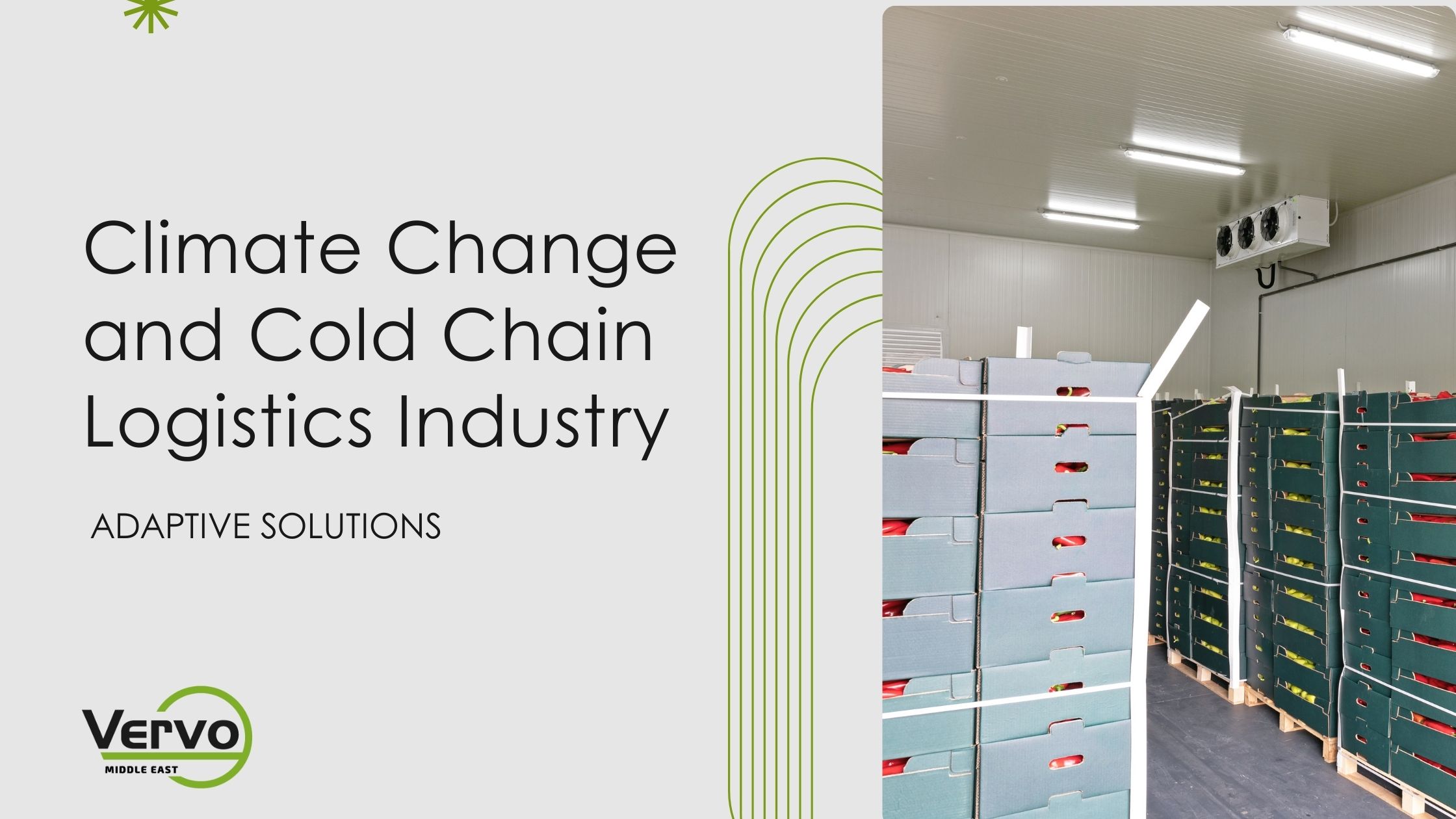Shipping pharmaceuticals to the UAE is not a simple process. One of the most critical stages in the pharmaceutical logistics process is the pre-shipment phase. This is the point where meticulous planning and careful preparation lay the groundwork for a successful journey from the supplier's door to the end consumer. Proper handling of the pre-shipment process can mean the difference between a streamlined, efficient delivery and a logistical nightmare. Vervo Middle East’s logistics team has delved with us into the intricate details of this vital stage.
A. Shipping Documentation
In the world of freight forwarding, documentation is king. It serves as the legal and logistical guidebook for your shipment, dictating its journey across borders and through customs. It is the key to unlocking a smooth, efficient trip and ensures that your pharmaceutical cargo is handled correctly at every stage.
- Bill of Lading: This is the official contract between the freight carrier and the shipper. It serves a dual purpose: outlining the terms and conditions of the shipment and acting as a receipt once the goods are delivered. It's a vital document that holds the carrier accountable for the safe delivery of your shipment.
- Commercial Invoice: This is more than just a bill for the shipped products. It details the buyer and seller, a description of the goods, and the delivery and payment terms. Customs officials use this document to assess duties and taxes, making it a crucial item in the process.
- Packing List: This document details the specific contents of your shipment. It typically includes information such as the number of items, the description, and the package count and weight. It helps in the inspection process at customs and verifies that what was shipped matches what was expected.
- Certificates of Origin: This document verifies the country in which the goods were manufactured. Certificate of origin is essential for customs because it helps officials determine if the goods are eligible for import and how much duty should be applied.
- Drug Master Files (if applicable): A Drug Master File (DMF) is a submission to the Food and Drug Administration (FDA) that may be used to provide confidential, detailed information about facilities, processes, or articles used in the manufacturing, processing, packaging, and storing of one or more human drugs.
Rigorous attention to detail in preparing these documents is crucial, as even minor errors can lead to major delays. Ensuring that all documentation is complete, accurate, and ready to go prior to shipment is the first step in a successful logistics process. It sets the tone for the entire journey and primes your pharmaceutical cargo for a seamless, efficient journey to its final destination.
B. Customs Documentation
After preparing the shipping documents, the next critical step in the pre-shipment process involves preparing the necessary customs documents. This set of paperwork functions as the passport for your pharmaceutical cargo, easing its passage through the complex labyrinth of international customs.
- Customs Declaration: This is the official document that lists and gives details of the goods that are being imported or exported. The document is used by customs authorities in the destination country to determine the true value of goods for the assessment of customs duties and taxes. It's vital to be detailed and accurate when filling out this document to avoid any potential penalties or delays.
- Import/Export License: This is a government document that authorizes the importation or exportation of goods. In many countries, pharmaceutical products are controlled items, and as such, an import/export license is required. This document assures that your cargo complies with local laws and can legally cross borders.
- Certificate of Analysis (CoA): A CoA is particularly crucial in the shipment of pharmaceutical goods. This document certifies that a regulated product meets its product specification. It contains the actual results obtained from testing performed as part of quality control. A CoA includes details such as the product name, batch number, test results, and date of testing. It provides assurance of product quality and safety.
- UAE-specific Import Documentation: The United Arab Emirates has specific requirements for importing pharmaceutical products. This includes a certificate from the UAE Ministry of Health, a product registration certificate, and an attested invoice from the UAE embassy in the country of origin. Complying with these specific requirements ensures a smooth entry into the UAE market.
Preparing these customs documents with painstaking precision is crucial. Each document serves a distinct purpose, and collectively, they ensure that your pharmaceutical cargo passes through UAE customs smoothly and reaches its destination without any hitches. The goal is to prevent any unexpected obstacles and pave the way for a seamless transition from the point of origin to the final destination. By accurately preparing both your shipping and customs documents, we build a strong foundation for the successful journey of the pharmaceutical cargo.
C. Regulatory Compliance
Regulatory compliance is not just a requirement; it's the cornerstone that upholds the integrity, safety, and efficacy of the life-saving products being transported, especially in the UAE. Compliance with both international and UAE-specific regulations is paramount to securing the trust of your clients and the end consumers of these products.
- Pharmaceutical Regulations (GxP) Compliance: GxP encompasses a range of compliance guidelines in the pharmaceutical industry, such as Good Manufacturing Practices (GMP), Good Distribution Practices (GDP), and others. These guidelines ensure that pharmaceutical products are produced and controlled consistently and to quality standards. They cover the handling, storage, and transportation of pharmaceutical cargo. As a freight forwarder, complying with GxP not only ensures the integrity of the products but also builds trust with your clients.
- Compliance with Local and International Trade Laws: Trade laws can change dramatically from one jurisdiction to another, and they can be even more complex when shipping across international borders. As a freight forwarder, it is essential to stay updated with these laws to avoid legal complications. This includes understanding the import and export laws of the countries involved and ensuring that all shipments adhere to these regulations.
- Compliance with UAE Ministry of Health Regulations: The UAE has specific regulations for importing pharmaceutical products to ensure the safety and efficacy of these goods. These regulations are administered by the UAE Ministry of Health. Ensuring compliance with these regulations will prevent any delays or rejections at UAE customs, thereby ensuring a smooth delivery process.
Regulatory compliance in the pharmaceutical logistics process is non-negotiable. It is a critical element that ensures the safety and efficacy of the transported goods from the manufacturer to the end consumer. A commitment to stringent regulatory compliance to the UAE strict pharma cargo regulations is a testament to your company's dedication to quality, safety, and professionalism.
D. Packaging and Labeling
Packaging and labeling in the pharmaceutical logistics process is a multi-faceted task. It's about more than just placing goods in a box and slapping on a label. Packing pharmaceutical cargo is a complex process that ensures the safety, integrity, and compliance of the pharmaceutical products all the way.
- Overseeing Appropriate Packaging: Packaging for pharmaceutical products is not a one-size-fits-all proposition. Different products require different packaging solutions to maintain their integrity. Some pharmaceutical products need to be in a sterile environment, while others require cushioning or protection from light. As a freight forwarder, we oversee the appropriate packaging for each product; it is crucial to ensure its safety and efficacy upon arrival.
- Labeling in Accordance with International and UAE Regulations: Proper labeling is a regulatory requirement and a crucial step in ensuring the safe use of pharmaceutical products. It provides necessary information to all parties involved in the logistics process, including handlers, customs officials, and the end user. For example, when shipping vaccines, the labeling on each package should include the following information: Name of the product; Name and address of the manufacturer; Batch number; Expiry date; Storage conditions (In this case, the specific temperature range); Directions for use; Any specific handling and disposal instructions; Barcode for tracking purposes
- Safety Measures: Tamper-evident and damage-proof packaging give an extra lay--er of security to your pharmaceutical cargo. Tamper-evident packaging allows you to determine whether the product has been interfered with during transit, while damage-proof packaging protects the product from physical harm.
- Compliant Labeling: Labels on pharmaceutical packages should comply with both international and UAE standards. They should contain critical information such as batch numbers, expiration dates, and storage conditions. This ensures the product is correctly used and handled at each stage of its journey.
- Cargo Insurance: Despite all the precautions, mishaps can occur. This is why securing comprehensive insurance coverage for your pharmaceutical cargo is essential. It protects your company and your clients from potential financial losses due to damage, theft, or other mishaps during transit.
- Temperature Control: Some pharmaceuticals are temperature-sensitive and need to be kept within a specific temperature range to maintain their efficacy. This is where our cold chain logistics team comes into play. Cold chain logistics involves the transportation and storage of temperature-sensitive goods in a temperature-controlled environment. Implementing packaging solutions that maintain the required temperature range is key to the successful delivery of these products.

Packaging Solutions For Pharmaceutical Cargo
The choice of packaging solution depends on several factors, like the required temperature range, the duration of transport, the nature of the product, and cost considerations. Some examples of packaging solutions for pharma cargo include:
- Insulated Packaging: This type of packaging employs materials with excellent thermal resistance to keep the temperature inside the package within a specific range. The insulation can be of different types: foam, aerogel, vacuum-insulated panels, etc. These materials slow down the rate of thermal exchange with the environment, maintaining the temperature inside the package for an extended period of time.
- Refrigerated Containers: Also known as reefer containers, these are used for large consignments. They are essentially mobile refrigerators that can be set to maintain a specific temperature. They are especially useful for long-distance or sea freight shipping.
- Phase Change Materials (PCMs): PCMs are substances that absorb or release thermal energy when they change their state (from solid to liquid or vice versa). They are used in packaging to maintain the temperature of the product, absorbing heat when the external temperature rises above a certain point and releasing heat when the temperature falls below a certain point. This helps in maintaining a constant temperature inside the packaging.
- Temperature-controlled Packaging with Active Systems: These are high-tech solutions that use active cooling or heating systems powered by electricity or batteries, like portable refrigerators or heaters. They are typically used for high-value products that require precise temperature control.
- Gel Packs and Ice Packs: These are used in combination with insulated packaging for maintaining lower temperatures. They are typically pre-cooled or frozen before use and placed inside the insulated package to keep the product cool.
- Dry Ice and Liquid Nitrogen: For extremely low temperatures, dry ice (for temperatures around -78.5°C) or liquid nitrogen (for temperatures as low as -196°C) is used in combination with insulated packaging.
The packaging and labeling stage of the pre-shipment process is your chance to safeguard the integrity of the product and ensure its safe and compliant arrival at the destination. It is your opportunity to implement proactive measures that protect the product, comply with regulations, and ultimately ensure the satisfaction of your clients and their customers. Remember, the packaging and labeling are not just containers and stickers; they are the armor and identification of the pharmaceutical cargo.
Shipping Pharmaceuticals To the UAE With Vervo Middle East
Vervo Middle East, an authorized shipping and logistics company in Dubai, efficiently manages every stage of pre-shipping for pharmaceutical cargo. With a history of handling over 110,000 cargoes, we have established a broad client base of over 8,000 in Europe and the Middle East and extend our services to over 120 countries globally. Our dedicated logistical team specializes in pharmaceutical logistics, offering tailored solutions for various categories such as cardiovascular, musculoskeletal, oncology, anti-infective, metabolic disorders, and vaccines. Each cargo type undergoes thorough logistical planning to meet its unique requirements, ensuring safe and compliant delivery.
Request your free, personalized quote today.
🌐Vervologistics.com | ☎️ +971508723352 | 📧




